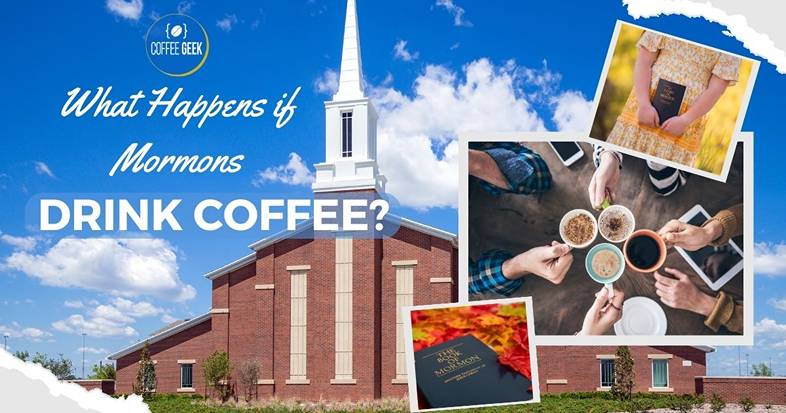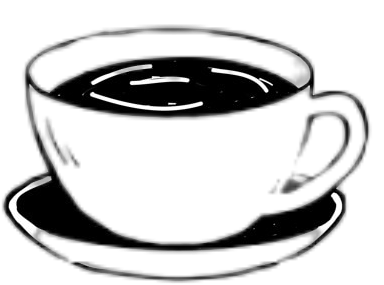
Exploring Alternatives: My Experience with Herbal Teas
Since delving into the reasons behind the Mormon prohibition against coffee, I decided to explore alternatives that align with this lifestyle choice. Herbal teas quickly became a staple in my routine, and I found the experience surprisingly enjoyable. With an array of flavors and potential health benefits, herbal teas offered a satisfying substitute for coffee.
One of my favorites has become chamomile tea. Not only is it caffeine-free, but it also promotes relaxation—perfect for winding down after a long day. I appreciate how this simple beverage allows me to pause and reflect, creating a serene moment in my otherwise hectic life. I’ve also tried rooibos tea, which is naturally sweet and rich in antioxidants. The versatility and health benefits of herbal teas provide a fulfilling experience that resonates with the values I’ve learned about the Mormon perspective on health.
Embracing a Caffeine-Free Lifestyle
Adopting a caffeine-free lifestyle has not only affected my beverage choices but has also encouraged me to rethink my overall approach to health and wellness. As I explored various alternatives, I began to incorporate more whole foods, staying mindful of what I consumed. This aligns with the idea of nurturing both body and spirit, a concept I’ve come to appreciate from my understanding of Mormon beliefs.
I’ve found that focusing on whole foods—like fruits, vegetables, and whole grains—has enhanced my overall well-being. This conscious effort mirrors the principles of the Word of Wisdom, which encourages the consumption of wholesome foods and moderation in all things. It’s a refreshing reminder that health isn’t just about what we avoid; it’s about embracing a balanced lifestyle that fosters vitality.
Why Can't Mormons Drink Coffee? A Broader Perspective
Reflecting on "Why Can't Mormons Drink Coffee?" has led me to consider the broader implications of dietary choices across different cultures. Many religious and cultural groups have restrictions based on health beliefs, historical practices, or spiritual convictions. This realization opened my eyes to the significance of understanding diverse perspectives when it comes to food and drink.
By observing these dietary practices, I’ve developed a greater respect for the various ways people navigate their relationships with food. It’s fascinating to see how something as simple as a beverage can serve as a symbol of faith, identity, and community. This experience has enriched my life, prompting me to approach discussions about food choices with curiosity rather than judgment.
The Social Dynamics of Non-Coffee Beverages
Navigating social situations without coffee has presented its own set of challenges and opportunities. When attending gatherings where coffee is prevalent, I’ve learned to bring my own herbal teas or alternative beverages to share. This not only allows me to stay true to my choices but also encourages others to try something different.
I recall one memorable gathering where I introduced my friends to a chai blend I had recently discovered. The rich spices and warmth of the tea became a delightful topic of conversation, creating an atmosphere of exploration and connection. It’s moments like these that remind me how food and drink can foster relationships, regardless of the individual choices we make.
The Health Benefits of Caffeine Alternatives
Throughout my journey, I’ve been pleasantly surprised by the array of health benefits associated with caffeine alternatives. Many herbal teas contain natural antioxidants, which contribute to overall health and well-being. For instance, peppermint tea aids digestion, while ginger tea is renowned for its anti-inflammatory properties.
I’ve also experimented with matcha, which, while still containing caffeine, offers a smoother energy boost compared to coffee. Its unique amino acids promote calmness and clarity without the jitters often associated with traditional coffee consumption. This discovery has allowed me to enjoy the benefits of caffeine without compromising my newfound commitment to a more balanced approach.
Conclusion: A Journey of Discovery
In reflecting on my exploration of "Why Can't Mormons Drink Coffee?", I realize that the journey has been about much more than just a beverage choice. It has been an opportunity to embrace new experiences, challenge my understanding of dietary practices, and foster a deeper appreciation for different cultures.
While my journey has led me to discover the joy of herbal teas and other caffeine alternatives, I recognize that the decision to abstain from coffee is deeply personal and rooted in individual beliefs. Whether you’re curious about a caffeine-free lifestyle or simply looking to diversify your beverage options, I encourage you to explore and find what resonates with you.
This exploration has enriched my life in unexpected ways, leading to a healthier lifestyle and a greater sense of connection with others. So, if you find yourself curious about alternatives to coffee, don’t hesitate to dive in and discover the diverse world of herbal teas and other caffeine-free options.
Why Can't Mormons Drink Coffee: A Personal Reflection
As someone who has always been intrigued by different cultures and belief systems, I often find myself diving deep into the practices and lifestyles of various groups. One topic that has particularly captured my interest is the dietary restrictions of the Mormon community, specifically their prohibition against drinking coffee. This curiosity led me to explore the reasons behind this practice, and I wanted to share my findings and personal reflections on the subject.
Understanding the Cultural Context
The Church of Jesus Christ of Latter-day Saints (often referred to as the LDS Church or Mormon Church) has specific guidelines regarding health and dietary choices. These guidelines are outlined in a health code known as the Word of Wisdom. Established in the early 19th century by Joseph Smith, the founder of the LDS Church, the Word of Wisdom advises against consuming alcohol, tobacco, and, notably, coffee and tea.
While this might seem like a simple restriction, it holds a much deeper significance within the Mormon faith. For Mormons, adherence to the Word of Wisdom is not just about physical health; it is also a reflection of spiritual well-being and obedience to divine commandments. This understanding shaped my perspective on the matter and made me appreciate the cultural context surrounding their beliefs.
Why Can't Mormons Drink Coffee? The Word of Wisdom Explained
When exploring the question, "Why Can't Mormons Drink Coffee?" it's essential to delve into the specifics of the Word of Wisdom. According to the doctrine, consuming coffee is viewed as harmful to both body and spirit. The caffeine in coffee is often cited as a reason for this prohibition, as it can lead to addiction and dependency, which are contrary to the principles of self-control and moderation advocated by the church.
Moreover, Mormons believe that adhering to these guidelines fosters a lifestyle of health and well-being. This emphasis on physical health aligns with their values of family and community, as a healthy lifestyle supports longevity and quality of life. The avoidance of coffee is thus seen as a proactive measure in maintaining both physical and spiritual integrity.
The Social Aspect of Coffee Consumption
In many cultures, coffee serves as a social lubricant—a way to connect with others over shared cups and conversations. However, for Mormons, the absence of coffee in social settings can create unique dynamics. I have observed that gatherings often feature alternative beverages, such as herbal teas, hot chocolate, or non-caffeinated drinks. This not only reflects their dietary choices but also serves to foster inclusivity within their community, allowing everyone to partake in the social aspects of gathering without the pressure to conform to drinking coffee.
While it may seem limiting, this practice fosters creativity and innovation in beverage options, leading to unique traditions that I find quite interesting.
Why Can't Mormons Drink Coffee? The Spiritual Perspective
From a spiritual perspective, the prohibition against coffee is rooted in a desire for clarity and focus. Mormons believe that avoiding substances that can alter the mind allows them to be more in tune with their spiritual practices, such as prayer, scripture study, and community service. By abstaining from coffee, they believe they are better equipped to receive divine inspiration and guidance.
Reflecting on this, I realize how powerful the connection between dietary choices and spirituality can be. The act of choosing not to consume something as common as coffee can become a daily reminder of one’s faith and commitments, reinforcing a sense of purpose and belonging.
Pros and Cons of the Coffee Prohibition
In contemplating "Why Can't Mormons Drink Coffee?" I compiled a list of pros and cons to better understand the implications of this practice.
Pros:
- Health Benefits: Avoiding coffee can lead to better physical health by reducing caffeine intake and potential side effects.
- Spiritual Clarity: Abstaining from coffee allows for greater focus during spiritual practices.
- Community Cohesion: Shared dietary restrictions create a strong sense of unity among members.
- Encourages Alternatives: The absence of coffee promotes creativity in beverage options during social gatherings.
- Simplicity in Choices: Having clear dietary guidelines simplifies decision-making regarding food and drink.
Cons:
- Social Isolation: In some social settings, the prohibition can lead to feelings of exclusion or isolation.
- Limited Beverage Options: The restriction can make it challenging to find suitable drinks in a predominantly coffee-consuming society.
Frequently Asked Questions about Why Can't Mormons Drink Coffee
Why do Mormons avoid drinking coffee?
Mormons avoid drinking coffee primarily due to the Word of Wisdom, a health guideline established by Joseph Smith, the founder of the LDS Church. This guideline advises against consuming substances that can be harmful to the body and spirit, including coffee and tea.
Is it the caffeine in coffee that Mormons are concerned about?
While caffeine is often cited as a reason for the prohibition, the main focus is on the overall health implications of coffee consumption. Mormons believe that avoiding coffee helps maintain physical and spiritual well-being.
Are there other beverages Mormons avoid besides coffee?
Yes, in addition to coffee, Mormons also avoid tea and alcoholic beverages. The Word of Wisdom encourages the consumption of wholesome foods and beverages, promoting a healthy lifestyle.
Do all Mormons strictly adhere to this guideline?
While many Mormons follow the Word of Wisdom closely, individual adherence can vary. Some members may choose to interpret or follow the guidelines differently based on personal beliefs.
What are some popular alternatives to coffee for Mormons?
Mormons often enjoy herbal teas, hot chocolate, and non-caffeinated beverages as alternatives to coffee. These options provide flavorful and enjoyable drinks without violating dietary guidelines.
How do Mormons feel about social situations involving coffee?
In social settings where coffee is served, Mormons often bring their own alternatives or focus on other non-caffeinated options. Many find creative ways to engage without feeling excluded from social interactions.
Can Mormons ever drink decaffeinated coffee?
While decaffeinated coffee contains less caffeine, it is still generally avoided by Mormons due to its association with the traditional beverage and the guidelines of the Word of Wisdom.
What is the general view of caffeine among Mormons?
Caffeine itself is not explicitly prohibited; however, many Mormons choose to avoid it due to its association with coffee and the emphasis on a healthy lifestyle as encouraged by their faith.
